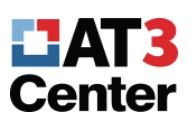Educators strive to provide an equitable and inclusive learning experience for all students, but some educator training doesn’t provide as much information on how to do so as one might like. Many teachers are familiar with the idea of accommodations like assistive technology (AT), but few receive detail about what options are out there, let alone how to utilize them, as part of their core education as a teacher. Below are three organizations that offer training on assistive technology for educators.

Assistive Technology Industry Association
The Assistive Technology Industry Association, or ATIA, is a leader in assistive technology education and research with the aim of ensuring that the best AT products and services are delivered to people with disabilities. ATIA as a robust Learning Center, where you can sign up for one of their many courses – some of which are free – or sign up for one of their webinars. ATIA’s educational materials feature a wide breadth of topics, from vision and hearing technologies, to physical access and participation, to web accessibility, and more. ATIA also hosts an annual conference with both in-person and virtual components, so educators have additional opportunity to network and make connections with one another and with other AT trainers.

Assistive Technology Act Technical Assistance and Training Center
The AT3 Center – short for Assistive Technology Act Technical Assistance and Training Center – is a project funded by the Assistive Technology (AT) Act that provides training and technical assistance to educators, families, and individuals with disabilities on assistive technology. The AT3 Center’s website has a rich Resources section, where you can find details about the AT program(s) in your state or territory, watch recordings of or sign up for future webinars, enroll in one of their online courses, and more. They also have an Explore AT section, which includes guidance on finding and purchasing assistive technology, information about various AT device databases focused on specific needs, and some additional AT resources.

CAST
AccessATE’s very own partner CAST is another nonprofit that conducts education research and development, and, as part of this work, created the widely-used Universal Design for Learning (UDL) framework and guidelines. CAST offers a wide range of products and services for educators, including learning opportunities for postsecondary educators, specifically, as well as an ever-growing list of additional learning resources. CAST is also the home of the National Center on Accessible Educational Materials (AEM) for Learning, also known as the AEM Center. The AEM Center works with states and districts to develop and sustain systems for providing accessible materials and technologies for all learners. Educators can access AEM’s wealth of accessible resources, learn to design their own, find their state AEM contact, and more.




 See More Feature Articles
See More Feature Articles